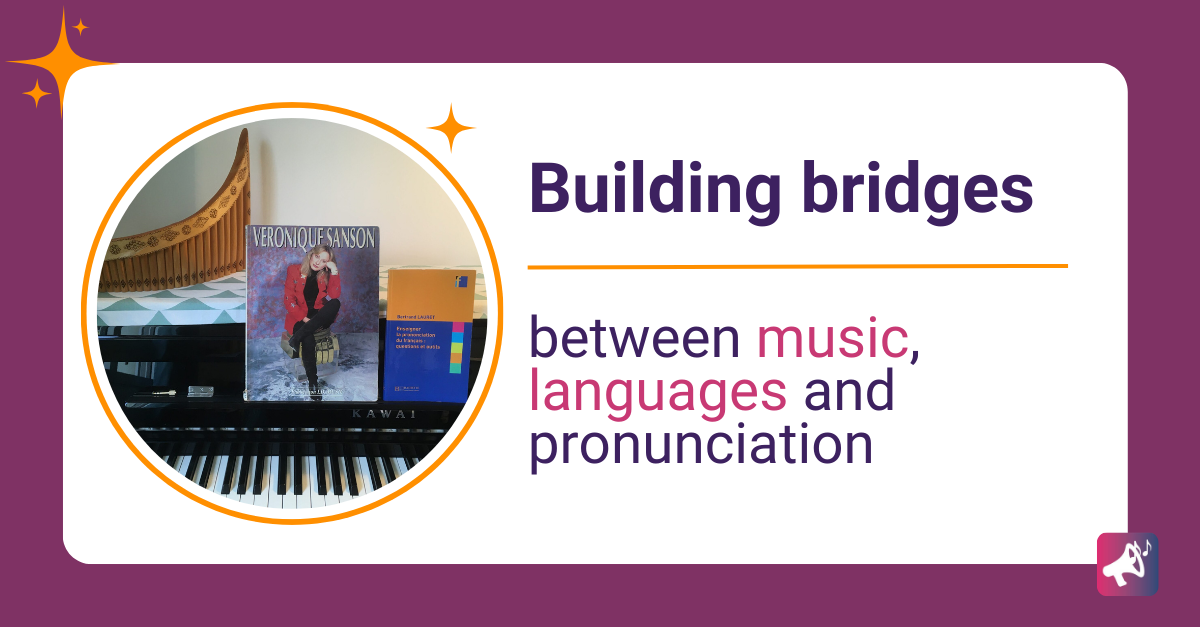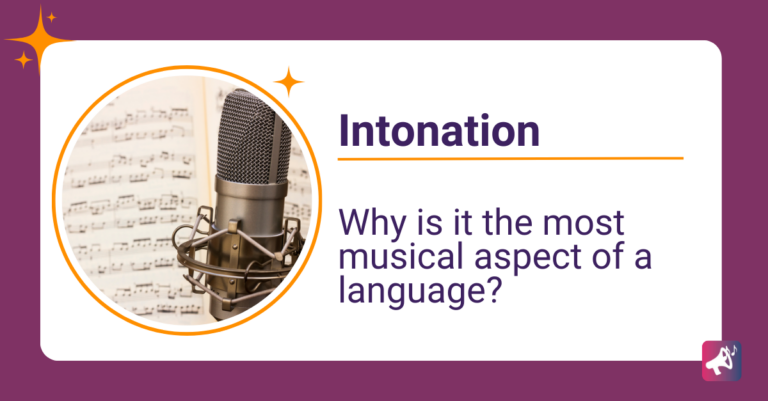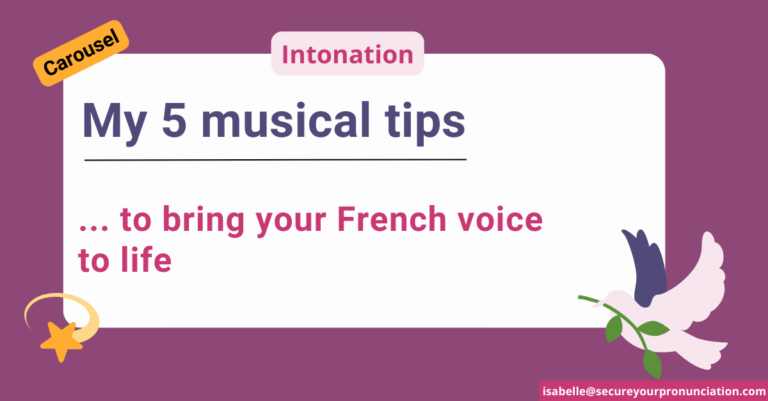I have wanted to build bridges between languages and music for a very long time.
In the summer of 2022, I celebrated my 20th work anniversary as a freelance translator from English and German into French.
I also realized that I started learning the piano about 40 years ago and discovered the joy of singing and playing in bands over 20 years ago.
✨ One day it struck me that singing could also help those who strive to improve their accent in a foreign language.
I then thought about what my singing teachers had taught me.
I looked at my own routine for learning a new song before a music rehearsal.
How can we use singing technique and songs to work on pronunciation
When I practice a new song in English, I’ve developed a very targeted routine:
- My Spotify playlists run on repeat every morning
(Nothing beats bathroom acoustics 😊). - I do breathing exercises to release any tension
(Pilates and hypo-pressure exercises, which work magic after a whole day in front of my computer screen). - I vocalise on opera arias using specific vowels
(I’m not sure my neighbours enjoy that part!) - I use tongue twisters and percussive consonants to activate all the jaw, lip, and tongue muscles.
- I don’t necessarily Say A Little Prayer, but I do spot the stressed and unstressed beats to find Aretha’s soul!
- As a French singer, I really have to practise nasal sounds and Janis Joplin’s phrasing in Me and Bobby McGee to fully capture the feeling of American country music.
- And I need to work hard to nail Gnarls Barkley’s Crazy flow.
The weekly routine I’ve developed to break down English songs has enabled me to experiment, to create drills and tools to sing more efficiently in rehearsal or on stage with musicians.
I wrote another article (in French) on the topic, if you’d like to find out more about how to use songs for your French pronunciation practice.
From practice to theory
I felt the need to understand what was behind each sound. I asked myself billions of questions … like:
What makes certain syllables simpler to sing than others?
Why is it helpful to change an ’i’ into a ‘u’ when singing high notes?
What makes an English song sound different from a French song?
Why does Celine Dion lose her Canadian accent when she sings in French?
So…
- I dived into my English and French phonetics books.
- I trained in several phonetic correction methods.
- I read tons of scientific articles on the benefits of music and singing for people who learn a foreign language.
- And I experimented with students who trusted me.
Every language has its music
Singing makes you aware of certain differences between English and French in a more physical way than when you speak.
French is a syllable-timed language where every syllable has approximately the same duration.
-> You could compare it to the sound of a classical string quartet.
Whereas English is a stress-timed language, that is more rhythmic and dynamic, with accelerations and stressed syllables.
-> You could compare it to the sound of a jazz trumpet solo.
When you apply the music (or prosody) of your mother tongue to a foreign language, that’s when your accent shows up.
Whether you love it or hate it, your accent – like your voice – is an inherent part of your identity.
And if you think it hinders your communication, there are ways to soften it a little.
This is what I write about on this blog… and what I teach in my online sessions.
Note : This post was the very first I wrote on LinkedIn to share my journey into pronunciation coaching.
You can read the French version here.




